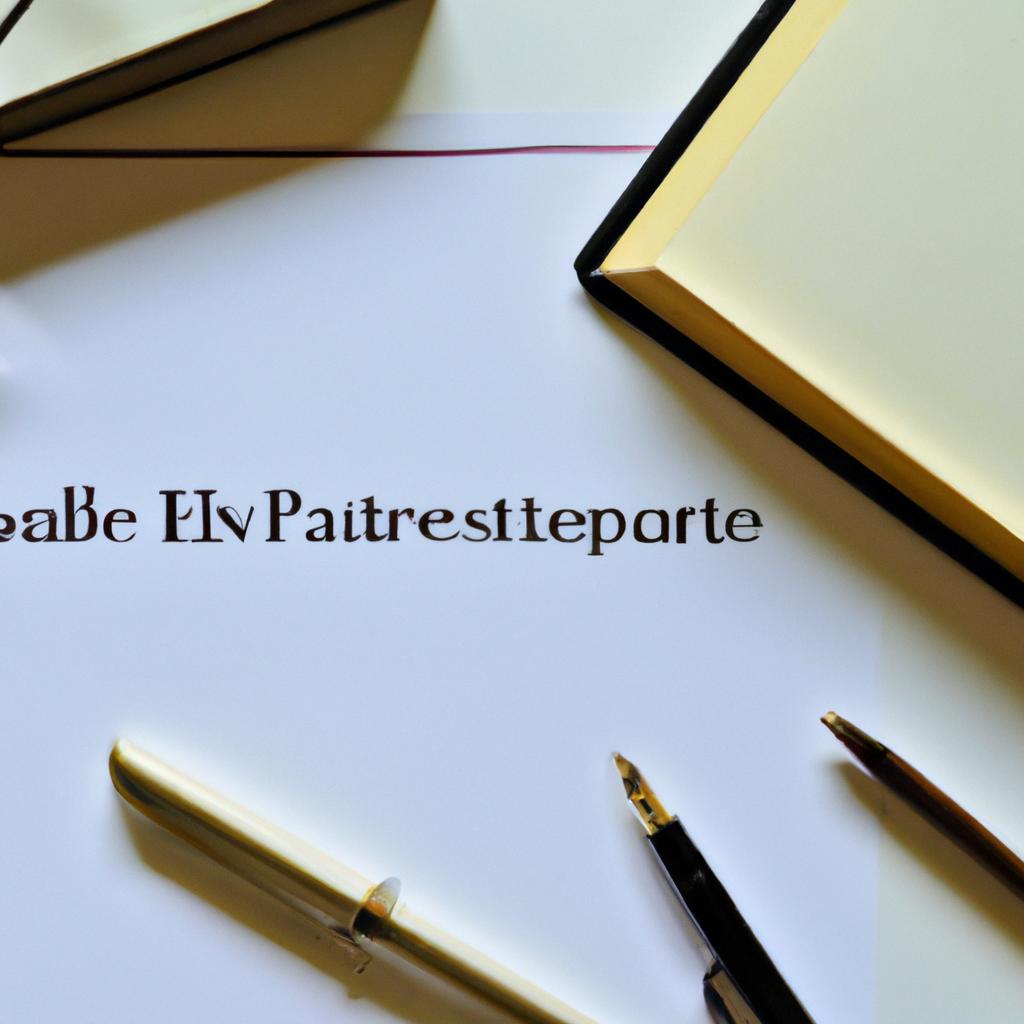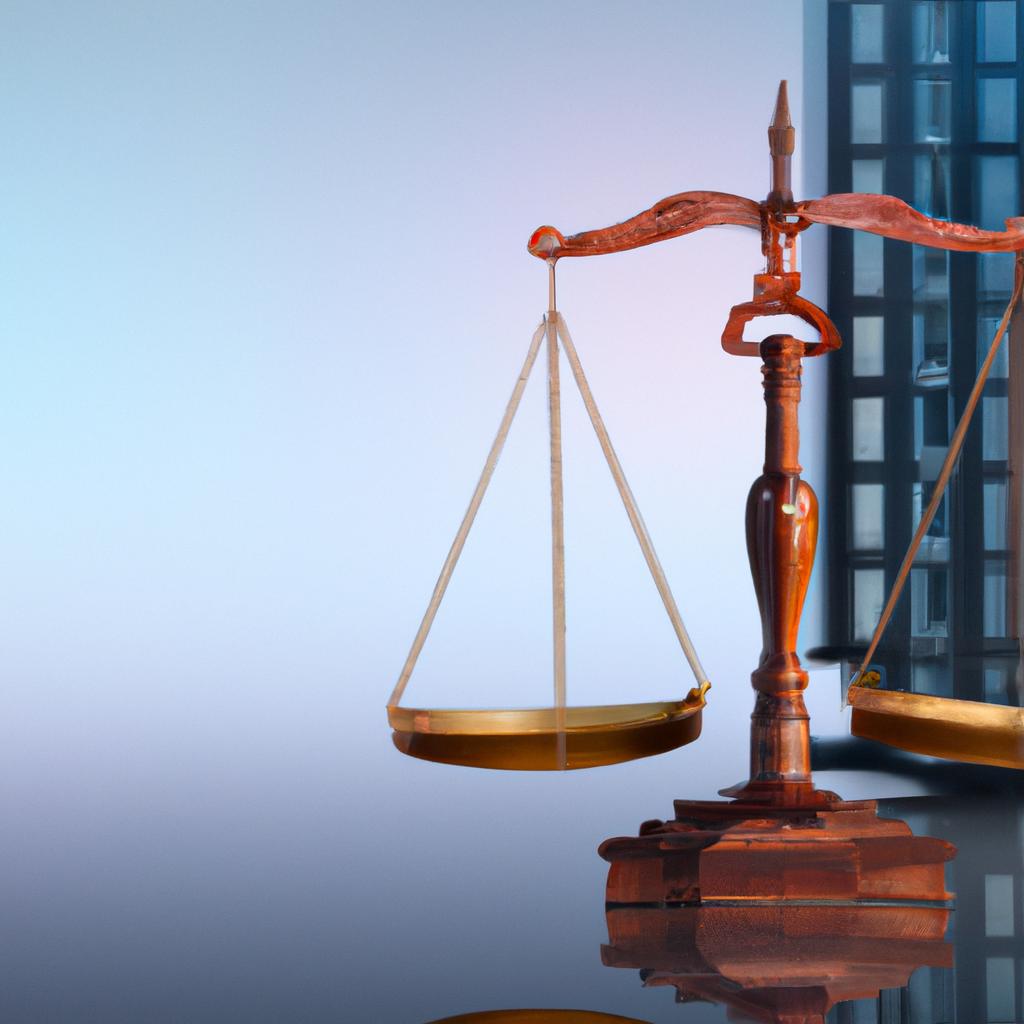Navigating the complexities of estate planning can be a daunting task for many individuals. However, the idea of taking control of your own financial future and assets may be an appealing prospect. At Morgan Legal Group in New York City, our team of experienced lawyers understands the importance of tailored estate plans that reflect your unique goals and wishes. In this article, we will explore the question: Can I do my own estate planning? Stay tuned as we delve into the intricacies of estate planning, probate, elder law, Wills, and trusts, and provide insight on whether taking the DIY approach is a viable option for you.
Considering the Complexity of Estate Planning Without Professional Guidance
When it comes to estate planning, many individuals may wonder if they can successfully navigate the complexities on their own without professional guidance. While it is technically possible to create your own estate plan without the help of a lawyer, it is important to consider the potential risks and challenges that may arise. Estate planning involves a variety of legal documents and considerations, and even a seemingly simple mistake could have significant consequences for your loved ones.
Without the expertise of a professional, you may overlook important details or fail to fully understand the implications of your decisions. Estate planning attorneys have the knowledge and experience to help you navigate the process effectively, ensuring that your wishes are accurately reflected in your estate plan. By consulting with a lawyer, you can gain peace of mind knowing that your assets and loved ones are protected according to your wishes.

The Importance of Understanding State Laws and Regulations in Estate Planning
Understanding state laws and regulations is crucial in estate planning to ensure that your assets and property are distributed according to your wishes. Each state has its own laws governing estate planning, including rules for wills, trusts, probate, and power of attorney. By familiarizing yourself with these laws, you can make informed decisions when creating your estate plan.
Attempting to do your own estate planning without a thorough understanding of state laws can lead to costly mistakes and unintended consequences. Hiring an experienced estate planning attorney, like those at Morgan Legal Group in New York City, can help you navigate the complexities of state laws and ensure that your estate plan is legally sound and in line with your objectives. Our team can provide personalized guidance and expertise to help you create a comprehensive estate plan that protects your assets and provides for your loved ones.

Potential Risks and Consequences of DIY Estate Planning
When considering DIY estate planning, it’s important to be aware of the potential risks and consequences that may arise. While the idea of saving money and completing the process on your own may be appealing, there are several factors to consider before diving in.
One major risk of DIY estate planning is the possibility of errors or oversights in your documents. Without the expertise of a knowledgeable estate planning attorney, you may miss important details or make mistakes that could invalidate your documents. Additionally, DIY estate planning may not take into account the complexities of your unique situation, leading to unintended consequences for your loved ones after you pass away.

When to Seek Legal Assistance for Estate Planning Needs
Seeking legal assistance for your estate planning needs is crucial to ensure that your wishes are carried out effectively and legally. While it is possible to do your own estate planning, there are certain situations where professional help is strongly recommended.
Some scenarios where you should consider seeking legal assistance for estate planning include:
- Complex Family Situations: If you have a blended family, dependents with special needs, or unique family dynamics, consulting with an estate planning attorney can help you navigate these complexities.
- High-Value Assets: If you have significant assets, a lawyer can help you minimize estate taxes and ensure that your wealth is distributed according to your wishes.
Q&A
Q: Can I do my own estate planning?
A: Yes, you can definitely do your own estate planning if you have a good understanding of the laws and regulations surrounding it. However, it’s always recommended to consult with a professional estate planner to ensure everything is done correctly.
Q: What are some benefits of doing my own estate planning?
A: One benefit is cost savings since you won’t have to pay for a professional’s services. Additionally, you have complete control over your estate plan and can make changes as needed.
Q: Are there any risks to doing my own estate planning?
A: Yes, there are some risks involved, such as making errors in your documents that could result in legal challenges in the future. It’s important to be thorough and knowledgeable when creating your estate plan.
Q: What are some common documents needed for estate planning?
A: Some common documents include a will, power of attorney, healthcare directive, and living trust. These documents help ensure your wishes are carried out in the event of incapacity or death.
Q: How often should I review my estate plan?
A: It’s recommended to review your estate plan at least every five years or whenever a major life event occurs, such as marriage, divorce, birth of a child, or significant changes in assets. Keeping your estate plan up-to-date is crucial for its effectiveness.
Concluding Remarks
In conclusion, the decision to do your own estate planning ultimately depends on your individual circumstances and comfort level with legal matters. While there are resources available to help you navigate the process, it’s important to carefully consider the complexity of your estate and seek professional guidance if necessary. Whether you choose to take on the task yourself or enlist the help of an estate planning attorney, the most important thing is to ensure that your wishes are clearly documented and your loved ones are taken care of. Remember, estate planning is a crucial step in securing your legacy and providing peace of mind for the future.
 When it comes to planning for your future and the future of your loved ones, estate planning is a crucial step. It involves creating a comprehensive plan for the distribution of your assets, making important healthcare decisions, and appointing someone to handle your affairs in case of incapacitation. Many people believe that estate planning is only for the wealthy or elderly, but the truth is that everyone can benefit from it. In fact, you may be wondering – can I do my own estate planning? The short answer is yes, but it’s not as simple as you may think.
When it comes to planning for your future and the future of your loved ones, estate planning is a crucial step. It involves creating a comprehensive plan for the distribution of your assets, making important healthcare decisions, and appointing someone to handle your affairs in case of incapacitation. Many people believe that estate planning is only for the wealthy or elderly, but the truth is that everyone can benefit from it. In fact, you may be wondering – can I do my own estate planning? The short answer is yes, but it’s not as simple as you may think.
In this article, we will explore the process of estate planning and whether or not you should attempt to do it on your own. We’ll discuss the benefits and drawbacks of DIY estate planning, provide practical tips, and share some first-hand experiences. So, let’s dive in!
Understanding Estate Planning
Estate planning involves creating legal documents that outline your wishes for your assets and healthcare decisions in case of your death or incapacitation. These documents can include a will, trusts, powers of attorney for healthcare and finances, and advance directives. They ensure that your wishes are carried out and your loved ones are protected after you’re gone.
Benefits of DIY Estate Planning
One of the main benefits of DIY estate planning is cost savings. Hiring a professional estate planning attorney can be expensive, and some may not be able to afford it. Doing it yourself can save you money in the short term, but it’s important to remember that a single mistake could cost you and your loved ones significantly in the long run.
Another benefit of DIY estate planning is convenience. With access to online resources and software, you can create your own estate planning documents from the comfort of your own home. However, it’s crucial to ensure that the documents you create are legally binding and meet all the necessary requirements in your state.
Practical Tips for DIY Estate Planning
If you decide to do your own estate planning, here are some practical tips to keep in mind:
1. Educate Yourself – Before you start creating your estate planning documents, take the time to educate yourself on the basics of estate planning and the laws in your state. This will help you make informed decisions and avoid common mistakes.
2. Use Legal Resources – There are many online resources and software programs that can guide you through the estate planning process. Make sure to use reputable sources and carefully review any documents before finalizing them.
3. Keep Your Documents Updated – Estate planning is not a once-and-done process. Your life and circumstances will change, and so should your estate planning documents. It’s important to review and update them regularly to ensure they reflect your current wishes.
4. Involve Your Loved Ones – Your estate planning documents will affect your loved ones, so it’s important to involve them in the process. Discuss your wishes with them and make sure they understand your intentions.
Drawbacks of DIY Estate Planning
While there are some benefits to DIY estate planning, there are also drawbacks to consider. One of the main drawbacks is the risk of making a mistake. Estate planning laws can be complex and vary from state to state. One wrong word or missing signature could render your documents invalid, causing confusion and potential legal battles for your loved ones in the future.
Additionally, estate planning is not a one-size-fits-all process. Everyone’s circumstances are different, and DIY documents may not address your unique needs and goals. An experienced estate planning attorney can provide personalized advice and guidance to ensure your wishes are properly documented and carried out.
First-Hand Experiences
To gain a better understanding of the pros and cons of DIY estate planning, we spoke with three individuals who have gone through the process. Here’s what they had to say:
“I decided to do my own estate planning because I couldn’t afford to hire a lawyer. It seemed easy enough, but I didn’t realize all the legal requirements and details involved. I ended up making a mistake, and it caused a lot of confusion and tension among my family members after I passed away.” – Emily, 45.
“I used an online software program to create my estate planning documents. It was convenient and cost-effective, but I’m not sure it accurately reflected my wishes. I wish I had consulted with an attorney for peace of mind.” – John, 60.
“I hired an experienced estate planning attorney, and it was the best decision I made. They provided me with personalized advice and addressed all my concerns. I have peace of mind knowing that my loved ones will be taken care of according to my wishes.” – Sarah, 67.
In conclusion, DIY estate planning may be a viable option for some individuals, but it’s crucial to fully understand the risks and commit to educating yourself on the process. Consulting with an experienced estate planning attorney may provide you with the peace of mind and personalized advice needed to properly plan for your future and your loved ones.


